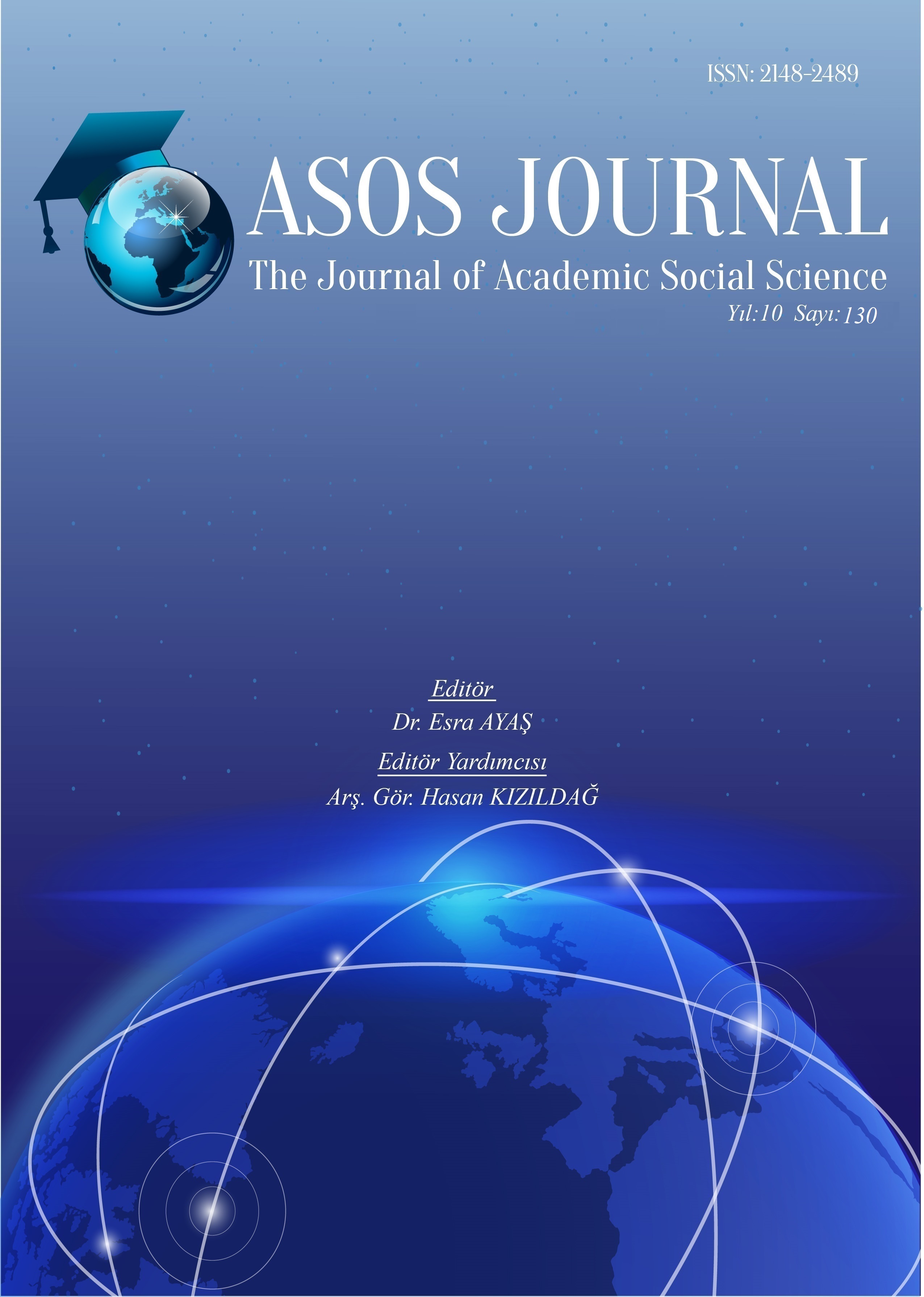Author :
Abstract
Bu çalışmada 18 yaş üstü spor yapan özel gereksinimli bireylerin spora katılım motivasyonlarının incelenmesi ve motivasyonu etkileyen durumların belirlenmesini amaçlamıştır. Araştırmaya Karadeniz bölgesinde yaşayan görme (28 erkek), işitme (28 erkek), fiziksel özel gereksinim (26 erkek) ve diğer (27 erkek) grubu olmak üzere toplamda 109 gönüllü katılmıştır. Katılımcılara araştırmacı tarafından hazırlanan demografik sorular anketi uygulanmıştır. Motivasyonlarını ölçmek için “Engelli Bireylerde Spora Katılım Motivasyon Ölçeği (ESKMÖ)” uygulanmıştır. Toplanan veriler SPSS 22 paket programında analiz edilmiştir. Normallik testleri için Kolmogorov-Smirnov testi, veriler normal dağılım gösterdiği için İndependet t testi ve Tek-Yönlü Varyans Analizi (ANOVA) kullanılmıştır. Homojenliği sağlamayan veriler Games-Howell testi ile Post-Hoc Çoklu Karşılaştırma testi yapılarak değerlendirilmiştir. Çalışmada elde edilen bulgulara göre, yaşa göre motivasyonda p<0,05 değerinde anlamlılık elde edilmiştir. Özel gereksinim türü ve ekipman türüne göre değerlendirildiğinde içsel motivasyonda anlamlılık bulunamazken (p>0,05), dışsal motivasyon ve motivasyonsuzluk alt boyutlarında (p<0,05) değerinde anlamlılık saptanmıştır. Sonuç olarak spor yapma alışkanlığının özel gereksinimli bireylerin spora katılım motivasyonlarını olumlu yönde etkilediğini söyleyebiliriz. Bu sonuçlar özel gereksinimli bireylerin motivasyonlarını arttırmak için sporun bir araç olarak kullanılabileceğini göstermektedir.
Keywords
Abstract
In this study, it is aimed to survey the sport participation motivation of individuals with special needs who do sports over the age of 18 and determine the situations that affect motivation.A total of 109 male volunteers, including blind ( 28 male), deaf (28 male ), physically handicapped ( 26 male ) and other ( 27 male ), living in the Black Sea Region, participated in the research. A personel information form prepared by the researcher was applied to the participants. To measure their motivation, “Sport Participation Motivation Scale for Persons with Disabilities (SPMSP) was applied. The collected data were analyzed in the SPSS 22 package program. Kolmogorov-Smirnov was used for normality tests, Independet t test and One-Way Analysis of Variance (ANOVA) were used because the data showed normal distribution. The data that did not provide homogeneity were evaluated by using the Games-Howell test and Post –Hoc Multiple Comparison test.According to the findings obtained in the study, in motivation variable according to age, a significance was found (p<0,05). When we look at the motivation according to the type of special needs and equipment, while there was no significance in intrinsic motivation (p>0,05), extrinsic motivation and amotivation sub-dimensions (p<0,05).As a result, we can say that the habit of doing sports positively affects the motivation of individuals with special needs to participate in sports.These results show that sports can be used as a tool to increase the motivation of individuals with special needs.
Keywords
- Avcı, O. (2019). Tekerlekli sandalye basketbol sporcuları ile ampute futbol sporcularının üst ekstremite fiziksel uygunluklarının değerlendirilmesi ve karşılaştırılması. Yüksek Lisans Tezi, İnönü Üniversitesi, Sağlık Bilimleri Enstitüsü, Beden Eğitimi ve Spor Anabilim Dalı, Malatya, Türkiye.
- Aydoğdu, M. (2020). Engelli sporcularda narşisizm ve saldırganlık düzeylerinin başarı motivasyonu üzerindeki etkisinin incelenmesi. Yüksek Lisans Tezi, Ömer Halis Demir Üniversitesi, Sosyal Bilimler Enstitüsü, Beden Eğitimi ve Spor Anabilim Dalı, Niğde, Türkiye.
- Bağçı, E. (2017). Engelli bireylerin turizme katılma motivasyonları ve kısıtları. Yüksek Lisans Tezi, Akdeniz Üniversitesi, Sosyal Bilimler Enstitüsü, Turizm İşletmeciliği Anabilim Dalı, Antalya, Türkiye.
- Bozkurt, T. M., Demir, G. T., & Dursun, M. (2019). Bedensel, işitme ve görme engelli sporcuların spora katılım motivasyonlarının incelenmesi. Uluslararası Sosyal Araştırmalar Dergisi; Cilt:12 Sayı:67, Türkiye.
- Ceylan, L., Çebi, M., Eliöz, M. ve Yamak, B; Pandemi Döneminde Üniversite Öğrencilerinin Fiziksel Aktiviteye Katılım Motivasyonunun İncelenmesi”. Ondokuz Mayıs Üniversitesi Eğitim Fakültesi Dergisi - Ondokuz Mayıs University Journal of Faculty of Education 40 (2), Aralık 2021 963-987. https://doi.org/1014044
- Çebi, M. (2018). Sporcuların sağlıklı yaşam biçimleri davranışlarının incelenmesi, İnönü Üniversitesi, Beden Eğitimi ve Spor Bilimleri Dergisi, 2018, 5(1), 13-20, e-ISSN: 2148
- Demir, G. T., İlhan, E. L., Esentürk, O. K., & Kan, A. (2017). Engelli bireylerde spora katılım motivasyon ölçeği (ESKMÖ): Geçerlik ve güvenirlik çalışması. Gazi Üniversitesi, Spor Bilimleri Fakültesi, Spormetre Beden Eğitimi ve Spor Bilimleri Dergisi, Cilt:16, Sayı:1,
- Güler, H. (2017). Beden eğitimi ve spor yüksekokullarında öğrenim gören öğrencilerin boş zaman engellerinin boş zaman motivasyonlarına etkisinin araştırılması (Bartın Üniversitesi örneği). Yüksek Lisans Tezi, Bartın Üniversitesi, Eğitim Bilimleri Enstitüsü, Beden Eğitimi ve Spor Anabilim Dalı, Bartın, Türkiye.
- Kaman, M. B., Gündüz, N., & Gevat, C. (2017). Tenis sporcularının spora katılım motivasyonlarının incelenmesi. Spormetre Beden Eğitimi ve Spor Bilimleri Dergisi, Cilt:2, Sayı: 15, Türkiye.
- Karakurt, A. G. (2017). Zihinsel engelli bireylerin sosyalleşmesinde sportif aktivitelerin etkisi. Yüksek Lisans Tezi, Selçuk Üniversitesi, Sağlık Bilimleri Enstitüsü, Beden Eğitimi ve Spor Anabilim Dalı, Konya, Türkiye.
- Sönmez, B. Y. (2018). Bedensel engelli sporcuların spora özgü başarı motivasyonlarının değerlendirilmesi. Yüksek Lisans Tezi, İbrahim Çeçem Üniversitesi, Sosyal Bilimler Enstitüsü, Beden Eğitimi ve Spor Anabilim Dalı, Ağrı, Türkiye.
- Şen, M. (2018). Ortaokul ve lise öğrencilerinin spora katılım motivasyonunun incelenmesi. Yüksek Lisans Tezi, Kahramanmaraş Sütçü İmam Üniversitesi, Sağlık Bilimleri Enstitüsü, Beden Eğitimi ve Spor Anabilim Dalı, Kahramanmaraş, Türkiye.
- Şirin, E. F., & Hamamioğlu, Ö. (2008). Uzak doğu spor branşlarındaki (taekwondo, karate, judo) sporcu gençlerin spora katılım motivasyonlarının belirlenmesi. Gazi Beden Eğitimi ve Spor Bilimleri Dergisi, Cilt:12, Sayı:2, Türkiye.
- Yalçın, İ. (2015). İşitme engelli futsal sporcularının başarı motivasyon düzeylerinin incelenmesi. . Yüksek Lisans Tezi, Fırat Üniversitesi, Sağlık Bilimleri Enstitüsü, Beden Eğitimi ve Spor Anabilim Dalı, Elazığ, Türkiye.
- Yıldırım, S. (2011). Lisanslı olarak takım sporu ve bireysel spor yapan ile spor yapmayan ortaöğretim öğrencilerinin sosyal beceri düzeylerinin karşılaştırılması. Yüksek Lisans Tezi, Abant İzzet Baysal Üniversitesi, Sosyal Bilimler Enstitüsü, Beden Eğitimi Öğretmenliği Anabilim Dalı, Bolu, Türkiye.





